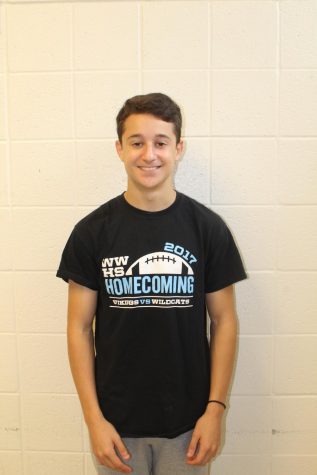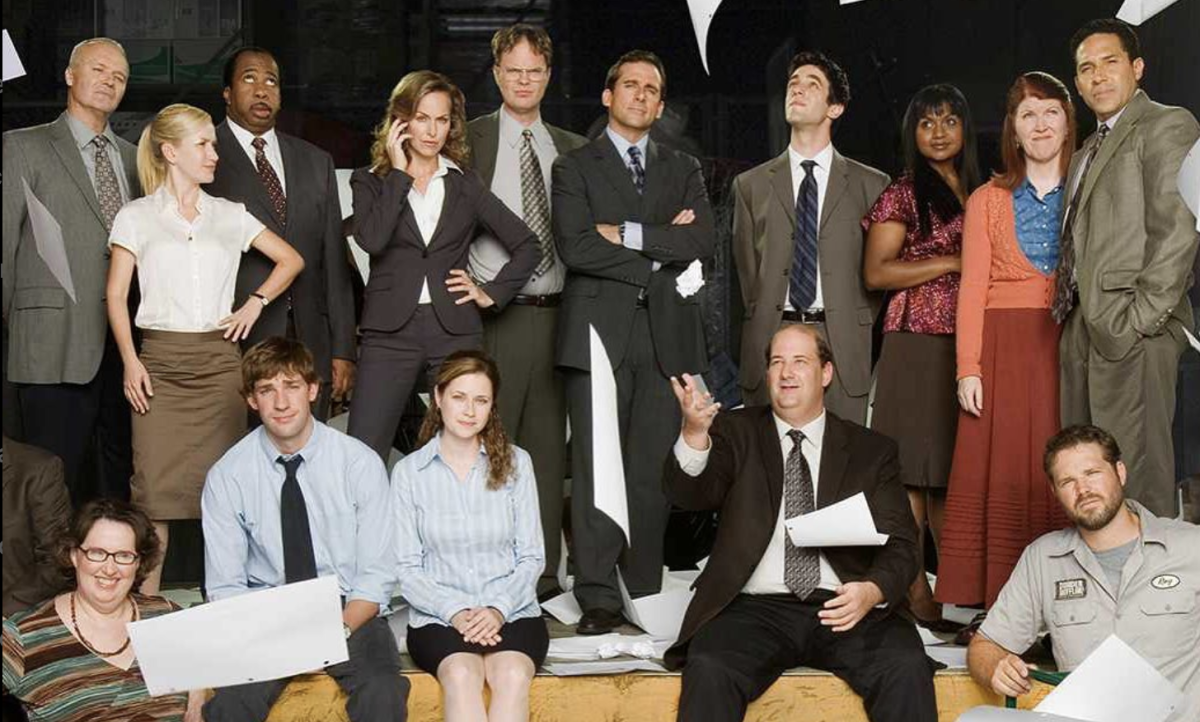52 years after “Mister Rogers’ Neighborhood” aired, we still remember its message
Mister Rogers’ sayings like “Won’t you be my neighbor?” and “It’s you I like” reminded me of how Mister Rogers’ words had shaped my childhood.
February 3, 2020
When I was little, lunch at my grandma’s house was nearly always the same: the smell of pasta cooking on her gas stove, the glowing screen of her 10-by-10 inch antenna TV and Mister Rogers’ timeless query: “Won’t you be my neighbor?”
“Mister Rogers’ Neighborhood” first aired in 1968, so while my parents grew up watching the show’s new episodes, I grew up watching reruns. But against the backdrop of my grandma’s floral-wallpapered kitchen, Mister Rogers’ retro, 1950’s-style living room never felt out of place; “Mister Rogers’ Neighborhood” almost felt like an extension of my grandma’s living. I treasured every visit.
As I got older and grew out of “Mister Rogers’ Neighborhood,” I still thought about the show often — the songs, Mister Rogers’ puppets and its nostalgic charm — but I didn’t dwell much on the show’s messages. Over time, the invitation of “Won’t you be my neighbor?” faded into a mostly meaningless phrase; it was simply a temporary reminder of the neighborhood I had once felt so at home in.
Then, right before Christmas, I saw “A Beautiful Day in the Neighborhood.”
I sat in the dark theater, eyes glued to the (much larger) screen, watching the iconic red trolley amble through Mister Rogers’ neighborhood, just like I had so many times in the past.
Then something hit me. Although I clearly remembered Mister Rogers’ common sayings like “Won’t you be my neighbor?” and “It’s you I like,” I had forgotten over the years to listen to his underlying message of wholehearted acceptance, both of others and of yourself.
Hearing those words again — and really listening to them this time — was truly moving. It reminded me of why the show remained ingrained in my memory and how Mister Rogers’ words had shaped my childhood.
Mister Rogers wasn’t only speaking to children through the screen; he was also speaking to parents, older siblings and anyone feeling a little lost in life.
In our fast-paced world, where we focus on success and constantly look toward the future, it’s important to refocus on the present; otherwise, the idea of enjoying life escapes us. Mister Rogers’ simple philosophies can help with that.
In a 1967 interview, Mister Rogers said, “I don’t think anyone can grow unless he’s loved exactly as he is now, appreciated for what he is rather than what he will be.”
This sentiment echoes the line Mister Rogers uttered so often during his television program: “I like you just the way you are.” With those few words, Mister Rogers reminds us that as people, our unpredictable futures don’t define our worth.
If the decisions we make in high school are made solely to appease a future school or employer or self (something far too common at Whitman), we compromise our own ability to enjoy a gratifying high school learning experience. We’re constantly reaching for perfect grades in the most challenging classes, while balancing an extensive list of carefully curated extracurriculars — all with the intent of creating our own perfect futures.
Mister Rogers reminds us that nothing about our academic careers — or our lives, for that matter — has to be conventionally “perfect” to be a worthy endeavor. The person who we strive to become doesn’t make the person we are right now any less valuable.
But wrestling with our own expectations and fears isn’t the only challenge we face as we grow up. Mister Rogers felt that the way we treat other people is just as integral to navigating life as the way we treat ourselves.
At some point during each episode of his show, Mister Rogers poses a simple question to the audience: “Won’t you be my neighbor?”
Asking somebody to be your neighbor is asking them to be a part of your life, and for you to be a part of theirs. Their role doesn’t have to be a big one; being “neighbors” is as simple as showing genuine kindness, respect and open-hearted acceptance to one another, regardless.
As highschoolers, it’s easy to get tunnel vision and focus solely on our own insecurities and anxieties while letting the needs of our peers pass us by. We need to remind ourselves every so often to look for neighbors and to be open to receiving them. In this way, we can create a stronger, more welcoming community.
My grandma recently passed away, and I’ve spent a lot of time thinking back on happy memories of the two of us. Often, I find myself picturing our family back in her kitchen, basking in the aroma of her cooking while watching the neighborhood’s little red trolley roll across the tiny TV screen.
We didn’t usually talk in those moments, so I wasn’t sure at first why they stood out to me. But Mister Rogers once said, “The connections we make over the course of a life — maybe that’s what heaven is.” I think it was in moments like those when we felt the most connected. We were both visiting the neighborhood, listening and learning together — as neighbors.









